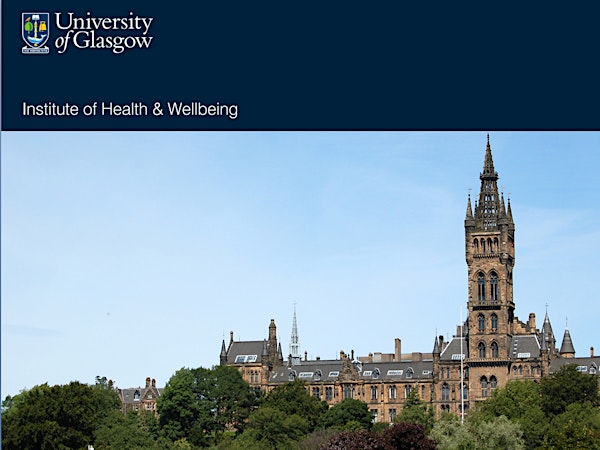
The Declining Significance of Masculinity
Date and time
Location
Sir Charles Wilson Lecture Theatre
1 University Avenue G12 8NN United KingdomDescription
We are pleased to invite you to:
The Institute of Health and Wellbeing Maurice Bloch Annual Lecture Series 2015/16
Title: The Declining Significance of Masculinity
Presenter: Professor Eric Anderson
Date: Wednesday 16 Septmeber 2015
Time: 1pm lunch will be served 30mins beforehand
Venue: Sir Charles Wilson Lecture Theatre
Chair: Dr Matt Maycock
PLEASE NOTE - video recording will take place at this event
Abstract:
In this evidenced-based talk, Professor Eric Anderson highlights how decreasing cultural homphobia has lead to the softening of adolescent men's masculinities. In addition to finding decreased homophobia, increased emoitonal disclosure with other men, his work shows increased physical tactility betwen straight men (kissing, cuddlng and loving). Although less explored, his research also suggests that young men are less willing to take unnecessary risks, have less interest or need to fight, have less interest in organised competetive team sports, and less interest in smoking. Accordingly, his theory, Inclusive Masculinity Theory, maintains implications for those in the field of health.
Biography
Dr. Eric Anderson is Professor of Sport, Masculinities & Sexualities at the University of Winchester. He holds four degrees, has published 12 books, over 50 peer-reviewed articles, and is regularly featured in international television, print and digital media.
Professor Anderson is recognized for research excellence by the British Academy of Social Sciences and is a fellow of the International Academy of Sex Research.
His work shows a decline in cultural homophohysteria leading to a softening of heterosexual masculinities. This permits heterosexual men to kiss, cuddle and love one another; and promotes inclusive attitudes toward openly gay athletes and the recognition of bisexuality. His sexuality work finds positive aspects of non-monogamous relationships and explores the function and benefits of cheating.
Professor Anderson also writes about sport psychology, distance running, and the social problems of organized team sports. Most recently, he is working on the problem of brain trauma in youth sports.
He is available for consultancy, training, speaking, and media requests.